Existem muitos sinais sinistros que mostram que você precisa consultar um gastroenterologista e, neste post, você aprenderá quais sintomas devem ser observados. Um gastroenterologista é um profissional médico e médico que passou por um treinamento rigoroso e extenso para aprender a gerenciar, tratar e curar circunstâncias médicas relacionadas ao trato gastrointestinal. Essas áreas incluem o intestino, o estômago, o fígado, o esôfago e o reto.
Com tal título exigindo mais de 5 anos de formação em “medicina interna” e “Gastroenterologia” (após a conclusão da faculdade de medicina); Os médicos gastrointestinais fornecem cuidados e tratamentos excepcionais e geralmente são mais bem-sucedidos do que os médicos quando se trata de diagnóstico e tratamento de complicações gastrointestinais.
Como os gastroenterologistas diagnosticam e tratam com precisão os sinais de alerta 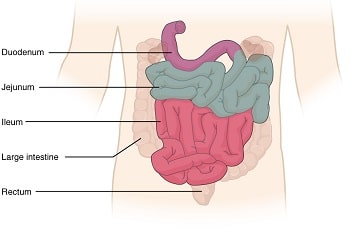
Índice
- 1 Como os gastroenterologistas diagnosticam e tratam com precisão os sinais de alerta
- 2 Você já foi diagnosticado com alguma doença?
- 3 Reunião com um Gastroenterologista
- 3.1 Neste guia, forneceremos os sinais de alerta para cada uma das seguintes condições:
- 4 15 Sinais que indicam que é hora de procurar um gastroenterologista para tratamento
- 4.1 Você tem sintomas de refluxo ácido, azia ou DRGE?
- 4.2 O que causa DRGE e azia?
- 4.3 Quais são as opções de tratamento disponíveis para azia e DRGE?
- 4.3.1 As possíveis sugestões podem incluir:
- 4.4 Você tem um nó na garganta?
- 4.5 Shorts ou calças muito apertados de repente? Pode não ser de hábitos alimentares/exercícios
- 4.6 Você já teve perda de peso repentina, inesperada e inexplicável?
- 4.7 Está com sangramento anormal na área do reto?
- 4.8 Você está apresentando sintomas de indigestão ou dispepsia?
- 5 O que causa indigestão e dispepsia?
- 5.1 Quais opções de tratamento estão disponíveis para indigestão e dispepsia?
- 6 Você está sentindo náuseas ou vômitos? Isso pode ser uma infecção do trato digestivo
- 6.1 Dor no estômago? Vômito? Você perdeu peso? Sinais para consultar um gastroenterologista!
- 6.2 Sofre de dor abdominal persistente? Possíveis sinais de síndrome da dor abdominal
- 6.3 Está sentindo arrotos, inchaço ou flatulência?
- 7 sinais de alerta de “deficiência de lactase” incluem:
- 7.1 Os sinais de alerta de uma infecção por H. Pylori incluem:
- 7.2 Sente dor abdominal depois de comer? Notou algum amarelecimento dos olhos?
- 7.3 Dor abdominal superior irradiando para as costas?
- 7.4 Dor abdominal do tamanho da mão direita superior – Mulheres obesas/com excesso de peso
- 8 Febre, diarreia, vômitos e náuseas – sinais de alerta de uma condição possivelmente grave
- 9 Sofre de diarreia consecutiva ou sangramento retal?
- 9.1 Você está sentindo dor no reto? Notou sangramento ou sangue nas fezes?
- 9.2 Sinal de alerta para consultar um Gatroenterologista para mulheres idosas – Abaulamento na área retal
- 9.3 Os sinais de alerta de prolapso vaginal incluem
Os gastroenterologistas recebem treinamento especializado em “endoscopia”, que é a prática de usar um “tubo” pequeno e estreito, porém flexível, com uma câmera embutida que será usada para navegar pelo trato GI durante procedimentos, cirurgias ou testes de diagnóstico para ver se há algum doenças ou crescimentos estão presentes.
Quando se trata de problemas médicos relacionados ao trato gastrointestinal, procurar o tratamento de um gastroenterologista garantirá que você receba o
tratamento mais eficaz possível pois você receberá tratamento de um profissional médico que tem a experiência de treinamento única e aprofundada que se traduzirá em receber cuidados de tratamento de alta qualidade e “abrangentes” para quaisquer complicações médicas relacionadas ao GI que você possa encontrar.
Está estatisticamente comprovado através do uso de estudos que os gastroenterologistas realizam colonoscopias e cuidados abrangentes para problemas gastrointestinais com uma taxa de sucesso mais alta em comparação com o(s) tratamento(s) fornecido(s) por outros tipos de médicos. O que isso significa para você é que você receberá um tratamento que detectará com precisão a presença de câncer ou pólipos, resultando em uma diminuição na chance de uma complicação médica decorrente do tratamento (pacientes tratados com GI também podem esperar passar menos tempo em o hospital).
Neste artigo, abordaremos os “15 principais sinais de alerta de que você precisa consultar um gastroenterologista”, que o ajudarão a determinar se você tem os sintomas de uma complicação médica que exigiria atenção e tratamento de um gastroenterologista. médico.
Você já foi diagnosticado com alguma doença? 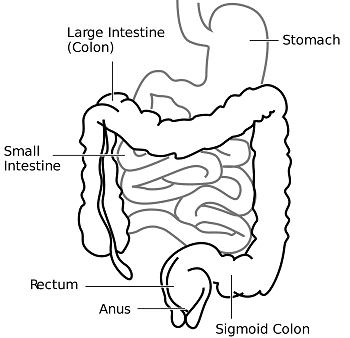
Quando você começa a reconhecer “dores” recém-formadas ou quaisquer sinais/sintomas decorrentes da região do trato digestivo, como azia, dor abdominal, diarreia ou constipação, você pode estar se perguntando se deve ou não visitar um médico regular, um internista ou gastroenterologista (especialista digestivo). Quem você escolhe para diagnosticar sua(s) condição(ões) no início de seu surgimento pode variar em vários fatores.
Em algumas situações, fazer a escolha certa de consultar um médico ou um gastroenterologista pode não ser claro, mas abaixo vamos ajudá-lo a entender os sintomas para procurar problemas gastrointestinais que devem ser diagnosticados e tratados por um médico GI.
Se você está experimentando sintomas ou dores na área digestiva pela primeira vez, o primeiro passo pode ser procurar aconselhamento de seu médico primário, como seu médico de cuidados primários ou internista.
Esperamos que este seja um médico com quem você construiu um relacionamento ao longo do tempo, pois ele/ela teria acesso total ao seu histórico médico e de tratamento, que pode ser revisado para ajudar a determinar o que está causando os sintomas que você está enfrentando.
Reunião com um gastroenterologista
Ao se encontrar com seu médico e fornecer a ele seus sintomas, um exame físico será executado para determinar se os testes devem ser realizados ou não. Uma vez que o médico tenha concluído o exame físico e tenha uma boa ideia do que está causando as dores gastrointestinais repentinas, ele pode determinar que o tratamento precisa ser fornecido por um especialista que possa fornecer cuidados de recuperação afetiva. Neste caso, o “especialista” seria o Gastroenterologista.
Dr. Tarugu, um gastroenterologista experiente e
premiado do sul da Flórida recomenda que os indivíduos que estão experimentando consistentemente crises esporádicas ou recorrentes em condições previamente diagnosticadas (como colite ulcerativa, doença de Crohn ou SII) devem procurar imediatamente tratamento de um gastroenterologista para
evitar mais crescimento ou complicações forte> maturidade.
Durante seu tratamento com o gastroenterologista, ele/ela atualizará seu médico com o status de sua(s) condição(ões) e o progresso que está sendo feito. Essas atualizações ajudarão seu médico de cuidados primários a ter uma boa compreensão de seu status, o que ajudará o médico a fornecer cuidados adequados na lista como suporte pós-recuperação. Algumas outras doenças gastrointestinais que os médicos tratam são doenças localizadas na área do pâncreas ou no fígado.
Se o seu médico de cuidados primários suspeitar que estão surgindo problemas nessas áreas, é seguro supor que você será encaminhado a um gastroenterologista local para um diagnóstico aprofundado e, assim, um plano de tratamento pode ser elaborado.
Neste guia, forneceremos os sinais de alerta para cada uma das seguintes condições: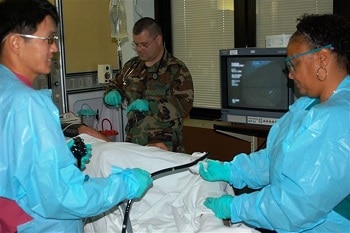
- Refluxo ácido, azia, DRGE
- Dispepsia/Indigestão
- Náuseas e vômitos
- Doença da úlcera péptica
- Síndrome da dor abdominal
- Arrotos, inchaço, flatulência
- Distúrbios do trato biliar/vesícula biliar e pancreatite por cálculos biliares
- Pancreatite por cálculos biliares
- Cálculos biliares em mulheres
- Problemas de constipação e defecação
- Diarréia (aguda)
- Diarréia (crônica)
- Síndrome do intestino irritável
- Hemorroidas e outros distúrbios anais
- Problemas retais em mulheres
Cada um são sinais únicos de condições potencialmente graves que não devem ser descartadas como “sem importância”, pois cada um dos sintomas listados acima pode resultar em sinais de complicação muito piores se não for diagnosticado e tratado “no início”.
Abaixo, abordaremos o que cada um desses sintomas pode significar e por que é importante procurar orientação e tratamento de um médico GI o mais rápido possível.
15 sinais que mostram que é hora de consultar um gastroenterologista para tratamento
Você está sentindo refluxo ácido, azia ou sintomas de DRGE? 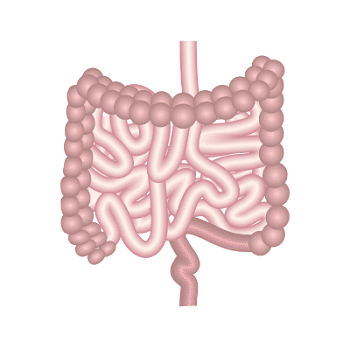
Estima-se que um total de 60 milhões de indivíduos nos EUA sofram de azia em média pelo menos uma vez por mês, com cerca de 15 milhões de pessoas sofrendo da condição “diariamente”. Experimentar sintomas de indigestão ácida (azia) são mais comuns entre mulheres grávidas e idosos.
Há uma condição chamada “refluxo gastroesofágico”, que é uma condição corporal que faz com que o ácido do estômago flua para trás e retorne ao esôfago. Por causa disso, alguns indivíduos, infelizmente, terão a experiência de sintomas decorrentes disso quando esse processo ocorrer (que pode ser diário, semanal ou mensal).
Um dos
primeiros sinais de consultar um gastroenterologista para azia é a experiência de sentir um desconforto aquecido vindo da região atrás do esterno. Essa sensação tende a transitar para a área da garganta e do pescoço, portanto, qualquer tipo de desconforto nessa área
deve ser um sinal de alerta que você precisa consultar um gastroenterologista para diagnóstico/tratamento.
Outro sinal de alerta de refluxo ácido é um sabor “azedo” ou “amargo” na parte de trás da garganta, pois este é o sabor do ácido do estômago. Como os sintomas de pressão aquecida da azia podem durar várias horas (e piorar ao comer), essa agitação consistente nessa área deve levar você a procurar imediatamente um teste de diagnóstico de um médico GI.
Se você tiver esses sintomas 2 ou mais vezes por semana, ou tiver perda de peso, perda de sangue ou deglutição de alimentos, pode ter um caso de azia muito grave. Se esses sintomas surgirem, você pode ter uma condição conhecida como “doença do refluxo gastroesofágico (ou “DRGE por injeção”).
O que causa DRGE e azia?
Antes que você possa começar a entender as causas exatas da DRGE ou doença do refluxo gastroesofágico, você deve primeiro entender quais são as causas da azia. A maioria das pessoas sentirá a agitação da azia no caso de o revestimento do esôfago entrar em contato com os fluidos do estômago por um
período prolongado .
Esses fluidos estomacais consistem em alguns materiais diferentes, incluindo enzimas e ácidos relacionados à digestão. Como o ácido do estômago permanece em contato com o revestimento do esôfago, pode ocorrer uma lesão no esôfago, o que resulta em uma sensação de desconforto, queimação e dor.
Enquanto uma válvula muscular na parte inferior do esôfago (conhecida como “Esfíncter Esofágico Inferior” ou “LES”) mantém o ácido no estômago e longe do esôfago (quando funciona corretamente), este não é o caso se um indivíduo tiver ou "doença do refluxo gastroesofágico" ou "DRGE", pois o "LES" tem a tendência de relaxar regularmente, o que permite que o ácido do estômago reflua de volta ao esôfago.
Tal sintoma deve ser tratado o mais rápido possível por um médico GI para impedir o desenvolvimento de outras complicações.
Quais opções de tratamento estão disponíveis para azia e DRGE? 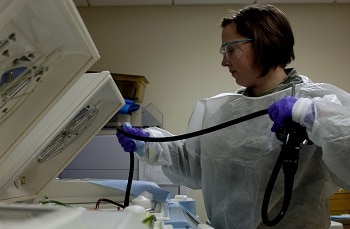
Ao visitar seu médico GI, um plano de tratamento/recuperação será formulado com base nos resultados do diagnóstico.
Sugestões possíveis podem incluir:
- Evitar bebidas e alimentos que comprovadamente contribuem para a ocorrência de azia (como alimentos gordurosos/condimentados, chocolate, café etc.)
- Um plano para acabar com o vício em nicotina pois fumar inibirá sua saliva e o tabaco causará um aumento na produção de ácido estomacal
- Um plano de perda de peso se você estiver acima do peso
- Evitando a ingestão de alimentos antes de dormir
- Um medicamento prescrito para ajudar a controlar a produção de ácido estomacal e a prevenção de azia
Se você se automedicar mais de duas vezes por semana para azia, isso por si só é um sinal de que precisa ser tratado por um gastroenterologista. As condições que não são tratadas por um GI experiente podem levar a uma complicação mais séria.
Você tem um nó na garganta?
Você está tendo problemas para engolir alimentos? Sente dificuldade ao retirar líquidos? Você está experimentando inchaço esporádico ou consistente na área da garganta? Nesse caso, isso pode ser um sinal de alerta de uma condição menor ou grave que deve levá-lo a procurar um gastroenterologista para diagnóstico. “Qualquer tipo de dor ou agitação causada pela água potável pode ser um sinal de alerta de um sério problema gastrointestinal”, afirmou o Dr. Vikram Tarugu, gastroenterologista experiente, certificado e premiado.
Outros sinais de alerta que o gastroenterologista precisará saber é se sua dificuldade para engolir é acompanhada ou não de soluços, rouquidão na garganta, tosse frequente ou sensação de plenitude depois de comer uma porção muito pequena de comida. Se algum desses sinais de alerta potencialmente perigosos ocorrer, possivelmente, a causa pode ser o câncer de esôfago. Assim, se você estiver enfrentando algum desses sinais de alerta,
não hesite procurar aconselhamento do seu médico primário ou gastroenterologista, se você já tiver um relacionamento com um.
Cheira um odor incomum da passagem de gás? Isso pode ser um sinal de alerta de parasitas infecciosos Surpreendentemente, em média, a pessoa normal libera quase 2 litros de gás diariamente, a menos que ocorram anormalidades no trato digestivo. Um sinal de alerta para prestar muita atenção é se você sentir dor ou desconforto na área abdominal durante os momentos de passagem de gases ou ao evacuar.
Além disso, se os movimentos intestinais e a passagem de gases começaram a ter um cheiro incomumente horrível, isso pode ser um sinal de que você tem giárdia, que é um parasita que irrita e infecta os intestinos. Como a giárdia pode piorar se não for tratada, um sinal de alerta como esse não deve ser esquecido.
Shorts ou calças muito apertados de repente? Pode não ser de hábitos alimentares/exercícios 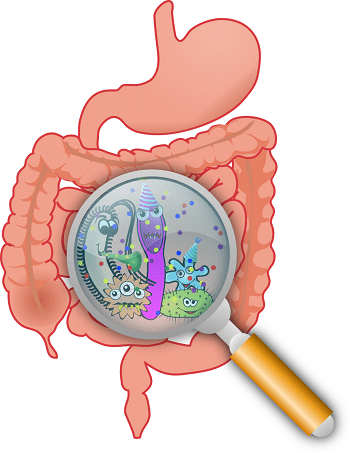
Todos nós já experimentamos inchaço em algum momento de nossas vidas, mas se ele se tornar persistente, existe a possibilidade de haver uma causa subjacente. Se você notou que está tendo dificuldade em colocar seus shorts quando apenas alguns dias atrás você os usou sem problemas, então você “pular fora de ir à academia” pode não ser o culpado.
O inchaço simplesmente ocorre quando nossa ingestão de comida / ar é demais e nosso corpo não se livra adequadamente dele. No entanto, se o inchaço começar abruptamente sem motivo aparente (você não come há algum tempo) e está ocorrendo juntamente com a presença de dor ou sangue nas fezes, isso pode ser um sinal de alerta de que é hora de consultar um gastroenterologista.
Tal sinal poderia significar que o desenvolvimento de doença celíaca, DRGE (doença do refluxo gastroesofágico), IBS (síndrome do intestino irritável) constipação ou cálculos biliares começou.
Se você reconhecer sangue nas fezes ou dores agudas anormais na área abdominal ao passar gases ou evacuar, então você definitivamente precisa ser diagnosticado e tratado por um médico GI.
Você já teve perda de peso repentina, inesperada e inexplicável?
Um sinal de alerta que deve ser diagnosticado por um médico GI é a perda de peso repentina, inesperada e inexplicável. Embora a perda de peso repentina possa ser atribuída a vários outros problemas relacionados à saúde, normalmente o melhor lugar para procurar a raiz do problema é o sistema digestivo.
Dr. Tarugu, um gastroenterologista certificado no sul da Flórida, com mais de 2.100 procedimentos concluídos com sucesso, afirmou que “os primeiros problemas que você deseja isolar como causa da perda repentina de peso é o câncer de estômago, pâncreas ou cólon”.
Como tal, se você tiver uma perda de peso repentina, consulte um gastroenterologista para ter certeza de que não é cancerígeno ou doença de Chron / celíaca (o que diminuiria a capacidade do seu corpo de absorver nutrientes vitais).
Experimentando sangramento anormal na área do reto? 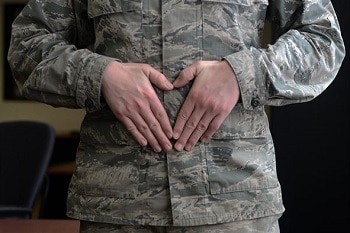
Ao evacuar, provavelmente seria um pouco preocupante notar alguns
trilhos avermelhados no papel higiênico, pois todos sabemos que o sangramento dessa área não é normal. O sangramento da área do reto pode ser um sinal de uma condição potencialmente perigosa e deve ser diagnosticado e tratado “imediatamente”.
Embora seja possível que o sangramento seja causado por hemorroidas, se não for, procurar um gastroenterologista será absolutamente necessário, especialmente se o sangramento for recorrente e se o indivíduo tiver mais de 40 anos de idade.
Você está com sintomas de indigestão ou dispepsia?
Indigestão (também conhecida clinicamente como “dispepsia”) é o termo para descrever uma condição que envolve vários sintomas diferentes que surgem durante uma refeição. Alguns desses sintomas podem incluir a sensação de estar “recheado” depois de terminar uma refeição, além de uma “dor” ou “sensação de queimação” na região abdominal superior.
A indigestão é uma condição bastante comum entre adultos de meia a idade, ocorrendo mensalmente, semanalmente ou até diariamente.
O que causa indigestão e dispepsia?
Se você tiver algum dos seguintes sintomas, procurar aconselhamento e tratamento de um médico GI é essencial para a prevenção de complicações:
- Sentir-se “cheio” durante uma refeição – Se você se sentir “empanturrado” e não conseguir terminar as refeições, pode estar com indigestão.
- Inchaço consistente após as refeições – Se você comeu uma refeição e se sente inchado e “excessivamente cheio” por horas após a refeição, isso pode ser um sinal de dispepsia.
- Experimentando dor e agitação epigástrica – The “epigastric” region is located towards the bottom of the chest and above the navel. If you feel pain in this area it could be a signal that you’re experiencing indigestion.
- Burning sensation in the Epigastric area – Within the same area that you may feel pain, experiencing a burning sensation in the epigastric area may be a sign of mild to severe indigestion.
What treatment options are available for Indigestion and Dyspepsia? 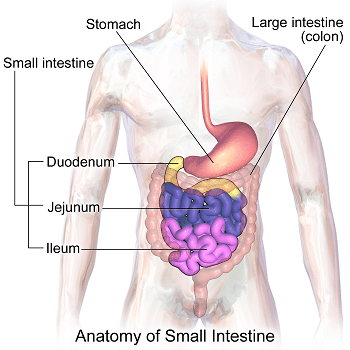
When visiting your GI doctor a treatment/recovery plan will be formulated based upon the diagnostic results.
Possible treatment suggestions may include:
- The inclusion of small meals throughout your day that are low in fat contents
- A plan on quitting smoking
- Having to stop the intake of medications that could possibly be irritating the lining of your stomach (aspirin for example)
- Stress-management techniques to help alleviate yourself of stress/anxiety
- Sleep recommendations that will help you to receive the rest you need
Keep in mind that indigestion and heartburn are two different conditions with each having their own unique symptoms.
However, if you’re experiencing the symptoms of both then it’s possible that you’re suffering from both of the two. Regardless, whether the agitation is minor or severe it’s important that you take such a warning signal seriously and seek treatment from a GI doctor that will help to diagnose and remedy the condition(s).
Are you experiencing Nausea or Vomiting? This could be a Digestive Tract Infection
Nausea is quite an unpleasant experience and can use intense feeling of dizziness, minor to severe discomfort and paint in the abdominal area. On the other hand, often times accompanies by nausea, vomiting is the occurrence of a contraction from the stomach that during times of nausea can help one feel a bit better as the content of stomach is during vomiting is the process in which it’s propelled up thru the esophagus.
Intense and consistent vomiting
could possibly be a warning sign of a
Gastroenteritis which can be treated by a gastroenterologist. Gastroenteritis is known to be a viral infection that causes inflammation within the digestive tract and can be treated thru the use of medication(s) which will be recommended by the gastroenterologist that you choose to visit.
Dulling pain in stomach? Vomiting? Have you lost weight? Signs to see a Gastroenterologist!
Are you experiencing a dullish pain in the stomach, weight loss, the undesired to intake food due to pain or nausea/vomiting? If so, this could be a sign of a minor yet serious matter. Such warning signs could possibly mean that you’re suffering from a Peptic Ulcer which can be diagnosed by a gastroenterologist thru the use of an upper GI series or an endoscopy.
If you’re experiencing
upper abdominal pains (
one of the biggest signs of a stomach ulcer ) be sure that you seek the diagnosis/treatment from a GI doctor so you can have it treated while preventing the possibly of further complications arising from the condition.
Suffering from Persistent Abdominal pain? Possible signs of Abdominal Pain Syndrome 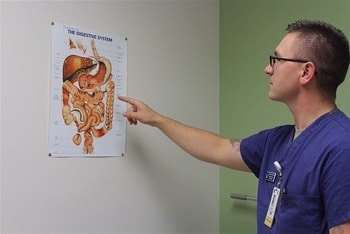
Individuals that may have GI disorders can suffer from
warnings signs that are both painless and pain-induced. Such symptoms can be diarrhea/constipation (in some cases, irritable bowel syndrome). Such signs, whether they’re painful or not, could possibly be a sign of a condition other then IBS known as “centrally mediated abdominal pain syndrome” (or “CAPS” for short) which used to be medically referred to as “functional abdominal pain syndrome” (FAPS).
CAPS is a gastrointestinal disorder and is typically caused by a change in the nerve impulse sensitivity and will cause intense and frequent pain in the abdominal section which for some individuals will be quite severe.
In some cases, pain can be so intense and persistent that it’ll affect you in the similar way as the pain from a tooth ache as it can consume your focus/life since it has a tendency to “not go away” for extended periods of time. If such warning signs are present, seek counsel from a gastroenterologist where an antidepressant may be prescribed to not only reduce anxiety caused by the pain but to help alleviate the pain all together.
Having feelings of Belching, Bloating or Flatulence?
If you’re experiencing the feelings of belching, bloating or flatulence (build-up of gas in the alimentary canal), these could be
warning signs that you you could possibly be suffering from a number of different conditions including allergies to certain foods, lactase deficiency, peptic ulcer disease or a H. Pylori Infection. Each of these we’ll cover below more in-depth so you can determine the possible cause(s) of your symptom(s).
Food Allergies – While not typical, the most severe allergic reaction that one can inherit from the ingestion of food is known as “anaphylaxis” which could possibly be life-threatening. Studies have shown that 90% of all allergies related to foods are caused from the ingestion of soy, wheat, shellfish, tree nuts, fish, peanuts, milk and eggs. If pain tends to arise after consuming such food items then this may be a signal that you need to seek the treatment of a gastroenterologist.
Lactase Deficiency – While lactase deficiency is pretty common with an estimated 3 million cases per year alone within the US, it’s an issue that’s brought upon individuals whose body has difficulty with digesting the sugar contents within dairy products. These issues
arise in the digestive tract and can be treated by a GI doctor thru the use of recommended off-the-shelf medication(s) or by a prescribed medication (depending on the severity of your condition.
Warning signs of having “Lactase Deficiency” include:
- Unusual bloating in the abdominal area or a feeling of swelling or fullness in the abdomen region
- Intense, sharp pain in the abdominal area
- Excessive diarrhea after the consumption of food
- Gás
- Unusual nausea
Individuals suffering from “Lactase Deficiency” can expect such warning signs to arise within
30 minutes to 2 hours from the consumption of milk or other food items containing dairy.
- Pylori Infection – Individuals suffering from Helicobacter pylori (H. pylori) are experiencing a bacterial infection that infiltrate the stomach. Typically, this will occur during childhood can possibly effect adults as well. This type of infection is estimated to affect nearly half of the world population but this doesn’t mean it should be ignored.
While symptoms aren’t always noticeable there are some warning signs that if arise should prompt you to see a gastroenterologist.
Warning signs of a H. Pylori Infection include:
- An intense ache/burning sensation in the abdominal section
- Abdominal discomfort and pain even when you haven’t eaten for a while
- Náusea
- An unusual loss of appetite
- Frequent abdominal burning
- Bloating from the abdominal section
- Unexpected and unexplained weight loss
If you experience persistent and severe abdominal pain, have difficulty with swallowing or have bloody/black vomit that has the appearance of coffee grounds then seek diagnosis from a GI doctor for treatment as these are all warning signs that need attention before complications arise.
Experiencing abdominal pain after eating? Notice any yellowing of the eyes?
If you experience a yellowing of the eyes/skin then it’s very well possible that this is the warning sign that Jaundice is occurring. Jaundice is a condition in which there’s an excessive amount of bilirubin in the blood which is known, medically, as hyperbilirubinemia.
Bilirubin is a “yellow pigment” substance that affects the color pigmentation in the white of your eyes and your skin tone.
If you’re experiencing such signs of this condition schedule an appointment to see a GI doctor as quickly as possible as if not, further complications could develop which could lead to: - Ascites – This is a build-up of fluid(s) within the abdominal area which can cause a great deal of pain
- Coagulopathy – This is the body’s tendency to be receptive to bleeding and bruising regularly
- Hepatic encephaolopathy – This is the process in which deterioration of the neuro functions diminish due to liver malfunctions, which allow results in substance build-up in the blood stream which heads to the brain (resulting in mental condition such as being “confused” or “drowsy”).
- Portal hypertension – This is a condition where there’s high blood pressure located within the veins that circulate blood to the liver which can result in complication that includes bleeding in either the stomach or esophagus
Upper Abdominal Pain Radiating to your back? 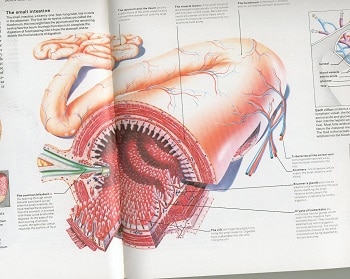
One warning signing of a possibly serious complication that should be diagnosed immediately is pain experienced in the abdominal section with the occurring pain spreading/radiating to your back. Such a feeling is a strong indicator and warning sign of “
gallstone pancreatitis ”.
Gallstones are a pretty common cause of pancreatitis and this is caused by gallstones that develop in the gallbladder to block the bile duct which puts a stop to the pancreatic enzymes from being able to travel to your small intestine (which forces them to return to the pancreas).
During this process, these pancreatic enzymes will agitate the pancreas cells which will cause inflammation which can cause a great deal of pain that will radiate from the abdomen to the back. In some cases, this feeling of pain will also be accompanied by a tingling, prickly sensation. If such warning signs arise, seek attention from a physician or preferably a gastroenterologist who will help to diagnose the issue so proper treatment can be prepared/prescribed.
In the event that the gastroenterologist determines that your pancreatitis us due to the gallstones then an ECRP (Endoscopic Retrograde Cholangiopancreatography) will be performed which is a procedure conducted by the GI doctor to remove the stones.
Upper Right-Hand Size Abdominal Pain – Obese/Over-weight Women
For heavier/obese women it’s important to take cautious note of any pain that stems from the upper right-hand side of the abdominal sections as such a pain could be the indicator of “gallstone pancreatitis” (a prominent condition for heavier-set women). What’s causing such pain is the process of the gallstones blocking the bile duct which causes a chain reaction as this will stop any/all pancreatic enzymes from traveling to the small intestine providing the enzymes with no choice but to return to the pancreas. If the gallstones travel from the gallbladder to the common bile duct, gallstone pancreatitis can develop which is a condition that can continue to worsen and mature in pain while also leading to further complications if not treated.
If you’re medically considered to be “obese” and have had such pain on a regular or consistent basis, consult a GI doctor as treatment in the form of medication and surgeries are available (depending on the severity of the condition).
Only making 1-2 bowel movements per week? Difficulty with going? Pain during defecating? There are a few signs to look out for and notate when looking for signs of possible gastrointestinal complications. A few of these signs include difficulties with making bowel movements, only making 1-2 bowel movements per week or if you experience pain during defecating. Constipation is considered to be present whenever an individual is making only 1-2 bowel movements per week so if this persists this alone could be a warning sign of “anal fissure”. With an estimated 200,000 cases per year within the US alone, anal fissure is a condition that refers to the tearing in the lining of the anus which can cause an immense amount of pain during all three scenarios we referred above (making bowel movements and pain during throwing-up).
Anal fissures develop throughout the specialized tissues that line both the anus and anal canal and this is called the “anoderm”. The reason this can be (and more than likely “will be”) so painful is because of the over-abundance of nerves located within the anal canal. Diagnosis and treatment from a gastroenterologist is recommended. Typically, diagnosis of this condition can be determined by the physical inspection of area with either medication or surgery being recommended to treat (depending on the severity of the anal fissure).
Fever, Diarrhea, Vomiting and Nausea – Warning Signs of a Possibly Serious Condition 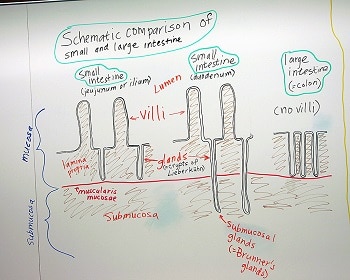
If you’re experiencing symptoms of a condition that includes intense and regular fevers, nausea/vomiting and diarrhea then notate these warning signs to show a gastroenterologist as these are signs of a possibly serious condition known as “bacterial gastroenteritis” which will need to be treated to prevent complications that could arise.
Bacterial gastroenteritis is a condition that develops and occurs whenever bacteria infiltrates your gut can and initiates an infection. If this occurs, inflammation will develop both in your stomach and intestines which will cause discomfort to say the least. Typical symptoms of “bacterial gastroenteritis” includes severe, extreme and persistent cramps in the abdominal area in addition to diarrhea/
While viruses are responsible for the majority of gastrointestinal infections bacterial infections are nearly just as common. A majority of people refer to bacteria-initiated infections as “food poisoning”.
There are a few different causes of “bacterial gastroenteritis” which can be poor hygiene habits, coming in close contact with pets or animals or from consuming foods/fluids that are contaminated with bacteria (even air-borne bacteria). If such warning signs arise, seek medical attention from a physician or preferably a gastroenterologist so the issue(s) can be properly treated to above any further development of bacterial growth.
Suffering from consecutive diarrhea or rectal bleeding?
First and foremost, any sign(s) of rectal bleeding is “not normal” and should never, in any scenario, be dismissed as a minor or non-severe matter as it’s a serious occurrence that requires the attention and treatment from a gastroenterologist.
One of the most prominent signs and symptoms of “irritable bowel syndrome” (IBS) is rectal bleeding and the presence of blood in the stool. In some circumstances, a warning sign is not making a bowel movement at all or only 1-2 times per week.
Blood expressed from the body caused IBD will appear to be “bright red” while if blood is originating from the upper area of the digestive tract the blood will be darker (dark/black stools). If such a sign has arisen be sure that you notate the darkness of the blood so you can provide this detail to a gastroenterologist who will use this information as a part of the diagnosis and treatment(s). In any case, if bleeding from the rectum is “severe” or if you’re throwing-up blood than this is a sign of a severe condition occurring which needs medical attention “immediately”.
Furthermore, such signs could also be a warning sign that you’re suffering from either “Crohn’s disease” or “ulcerative colitis” which are also conditions that you’ll want to have inspected by a GI doctor. Chron’s disease is a condition affecting 200,000 individuals per year and is a chronic, inflammatory irritable bowel disease that runs alone the digestive tract lining.
Ulcerative colitis is another chronic disease that inflames the bowel area which results in the digestive tract becoming inflamed. If any of the warning signs above are occurring, seek medical attention. You don’t want to take the chance of such conditions maturing in growth/size as not only could further complications arise but you may have to undergo additional treatments which otherwise could’ve been avoided had you have the condition(s) treated early on.
Experience vague or minor abdominal pain with a change in bowel movements last for 3+ months? Any changes in your normal bowel movement habits that are lasting for 3+ months is a sign that your body is changing, or, is changing due to an irregular occurrence/condition that should be looked at by a GI doctor; especially when you’re experiencing changes in bowel movement that are lasting for an extended period of time.
Irritable Bowel Syndrome (IBS) is a condition that can spark a significant amount of pain to its victims and will initiate a discomforting agitation feeling in the abdominal area. There are some very common symptoms of having IBS which include constipation, gas and diarrhea (in addition to a pain-induced belly). Having your IBS diagnosed for the severity will help you to have a planned pain-management regiment that will be created for you by the gastroenterologist.
When your stomach is experiencing pain it’s caused from the constipation or the diarrhea although is the painful feeling(s) diminish upon making a bowel movements then more than likely, your symptom(s) are an indicator of your pain being tied to a condition other than IBS (consult a GI doctor for diagnosis). This pain is initiated by contractions which can and will cause intolerable pain that will consume your life, make it difficult to rest and will make it difficult to focus on aspects of life (work for example).
Are you feeling pain stemming from the rectum? Notice bleeding or blood in the stool? 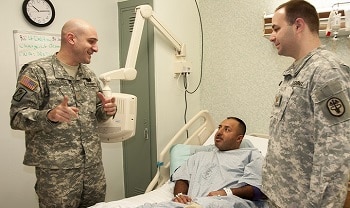
When it comes to your health it’s never a smart idea to over-look symptoms of possible health-related complications and rectal pain, bleeding from the rectum or the presence of blood in your stool are warning signs of a possibly serious complication. If you’re experiencing any of these signs, there’s a possibility that you body is suffering from one or more conditions that include it hemorrhoids, anal fissure, or anorectal cancer (although this is rare).
Hemorrhoids is a condition that should be treated by a GI doctor as Hemorrhoids is a medical condition that means the veins in the rectum and anus have become “swollen” which can cause the veins to bulge which will then result in severe agitation especially during bowel movements. Swollen hemorrhoids may be referred to by your gastroenterologist as “piles” as this is a commonly used medical term for this particular condition.
Hemorrhoids , depending on the severity of you case(if it’s determined by the GI doctor that you in-fact have it), you may undergo an operational procedure where the gastroenterologist will make use of specially designed medical equipment (not that intrusive) to “shrink” and “remove” the hemorrhoids which could actually be done on-site at the GI doctor’s office. Another treatment option is the GI doctor administering an injection in to the hemorrhoid with a specially formulated solution that will result in scarring the hemorrhoid to close it off.
Anal fissure is another condition that could be occurring if bleeding from the rectum is prevalent as this condition is the occurrence of “tearing” in the anus lining which will cause blood to originate out of the rectum which can be noticeable by looking at the stool (is blood noticeable?).
Finally, bleeding from the rectum can “possibly” be a sign of “
anorectal cancer ” although this is quite uncommon and not the typical cause of bleeding from the rectal region. “Anorectal cancer” is a malignant infested disease that forms within the tissues and glands of the anus. If you’re suffering with HPV (human papillomaviurs) will increase the chances of “rectum cancer development” so it’s vitally important that you seek diagnosis is warning signs such as rectal bleeding occur.
Warning sign to see a Gatroenterologist for elderly women – Bulging in Rectal area
For elderly/older women, experiencing a bulge or in the rectal area (comparable to a stomach bulge) is a serious sign of either “rectal prolapse” or “vaginal prolapse”; serious yet treatable conditions that can be cured by a gastroenterologist thru the practice of medication(s) or procedural operations.
In the United States it’s estimated that 10% of all elderly women suffer from rectal prolapse with signs ranging from rectal bleeding to the feeling of a “bulge” in the rectal region (noticeable to the touch). Rectal prolapse, specifically, is a condition in which the parts of the large intestine will protrude out of the anus and will cause quite a bit of discomfort, pain, difficulty with making a bowel movement and rectal bleeding.
If such signs occer, don’t procrasitance on receiving treatment. Consult with a GI doctors so treatment preparation(s) can be facilitated.
Vaginal prolapse is another condition that rectal bleeding can be a warning sign of. Vaginal prolapse is a serious condition where the bladder, rectum, urethra, small bowel or uterus will begin to fall out place.
Warning signs of vaginal prolapse includes 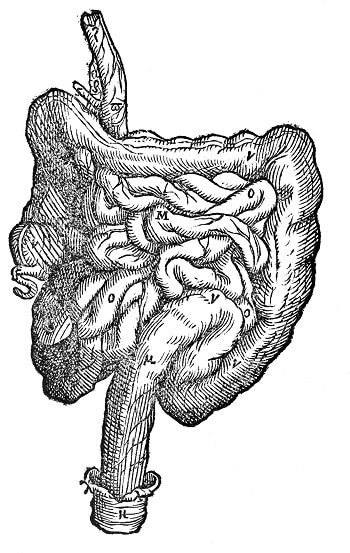
- Having the feeling of sitting on a ball
- Bleeding from the vaginal area
- Unusual increase in discharge
- Unusual issues with engaging in intercourse
- The observation of noticing the uterus (or cervix) protruding out of the vagina
- An unusual pulling/heavy feeling radiating from the pelvis
If any of these warning signs occur, it’s time to visit a gastroenterologist so you can receive an accurate diagnosis and treatment.
When it comes to your overall health, maintaining your normal body functions and avoiding complications a gastroenterologist can is a great go-to medical professional as you’ll be able to take advantage of the specialized training that the GI doctors has received so you can alleviate yourself of medical complications.
If any of this signs on this list has occurred, don’t hesitate to seek the intervention of a GI doctor. It’s paramount to ensuring the longevity of your health and will provide you with the peace-of-mind knowing that your symptoms are being affectively diagnosed and of course, treated.
We hope you found this guide helpful. Your gastrointestinal health is important to us and it’s our sincere mission to provide useful medical advice and suggestions.














 Alimente uma família de quatro pessoas com esta lista de compras Paleo SCD
Alimente uma família de quatro pessoas com esta lista de compras Paleo SCD
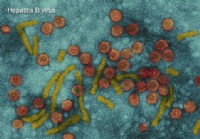 A hepatite B é contagiosa?
A hepatite B é contagiosa?
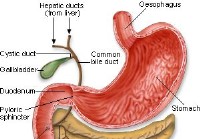 Câncer de pâncreas
Câncer de pâncreas
 Como melhorar sua mentalidade para curar mais rapidamente
Como melhorar sua mentalidade para curar mais rapidamente
 A dieta específica de carboidratos é apoiada por 124 anos de pesquisa e testes
A dieta específica de carboidratos é apoiada por 124 anos de pesquisa e testes
 Os coronavírus humanos precisam de materiais orgânicos para uma transferência eficiente entre as superfícies
Os coronavírus humanos precisam de materiais orgânicos para uma transferência eficiente entre as superfícies
 O que é o procedimento de remoção de corpo estranho retal?
Quais são as causas de um corpo estranho retal? O médico fará o histórico completo do paciente para saber se a causa dos problemas é um corpo estranho retal. O reto é a parte após o intestino on
O que é o procedimento de remoção de corpo estranho retal?
Quais são as causas de um corpo estranho retal? O médico fará o histórico completo do paciente para saber se a causa dos problemas é um corpo estranho retal. O reto é a parte após o intestino on
 Criação de comunidade em 2015
Meu coração estava batendo... eu estava tão animada. E então, em um olhar para a tela, tudo se foi. Eu estava chateado. Não há nada mais frustrante do que comparecer a uma aula e perceber que você
Criação de comunidade em 2015
Meu coração estava batendo... eu estava tão animada. E então, em um olhar para a tela, tudo se foi. Eu estava chateado. Não há nada mais frustrante do que comparecer a uma aula e perceber que você
 A vibração de todo o corpo ajuda a reduzir a inflamação,
graças ao microbioma intestinal A vibração de todo o corpo parece melhorar muitos sintomas da diabetes mellitus tipo II, em que a glicose e a inflamação destrutiva disparam. O procedimento ajuda o cor
A vibração de todo o corpo ajuda a reduzir a inflamação,
graças ao microbioma intestinal A vibração de todo o corpo parece melhorar muitos sintomas da diabetes mellitus tipo II, em que a glicose e a inflamação destrutiva disparam. O procedimento ajuda o cor